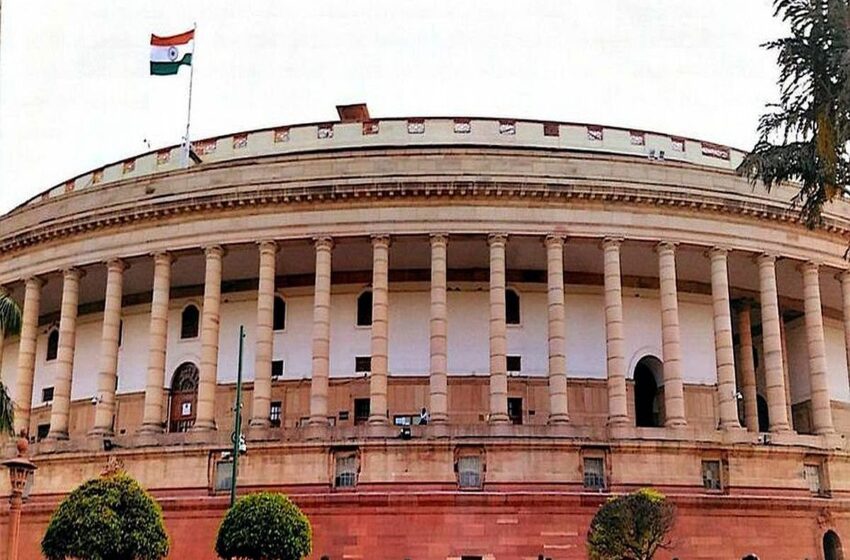Unfolding the Folds of Breast – World Breastfeeding Week 2021

Decoding National Commission for Homoeopathy Bill, 2020
Lok Sabha has passed the National Commission for Homeopathy Bill, 2020 by Voice vote on 14th September 2020, first day of the Monsoon Session.
The bill seeks to repeal the Homoeopathy Central Council Act, 1973 and to set up a National Commission for Homoeopathy (NCH).
This homeopathy bill will play an important role for the growth of Homeopathy and in turn the homeopaths in the country as it seek to improve the medical education system through the availability of adequate & high-quality homeopathy practitioners across the country.
The Bill promotes equitable & universal healthcare by making the services of homeopathy professionals accessible to all citizens.
Please read below to understand the National Commission for Homeopathy Bill, 2020 in detail:
TIMELINE
- 7 Jan, 2019: Introduced in Rajya Sabha by the Minister of State for AYUSH, Mr. Shripad Yesso Naik
- 11 Jan, 2019: Referred to the Standing Committee for the review
- 27 Nov, 2019: Standing Committee provide its report on the bill
- 18 Mar, 2020: Passed by Rajya Sabha
- 14 Sept, 2020: Passed by Lok Sabha
PURPOSE:
- To ensure the availability of adequate homeopathic medical professionals with high standards
- Adoption of the latest medical research by homeopathic medical professionals
- Periodic assessment of medical institutions
- An effective grievance redressal mechanism
CONSTITUTION OF THE NATIONAL COMMISSION FOR HOMOEOPATHY
This bill will enable the setup of National Commission for Homoeopathy (NCH):
- Commission consist of 20 members appointed by the Central Government.
- A search committee will be formed with six members including the Cabinet Secretary and three experts nominated by the central government (of which two will have experience in the homoeopathic field)
- These 20 positions include a Chairperson, the President of the Homoeopathy Education Board, the Director- General of National Institute of Homoeopathy, the President of the Medical Assessment and Rating Board for Homoeopathy, Advisor or Joint Secretary in-charge of Homoeopathy, Ministry of AYUSH in addition to other members.
- These posts have a maximum term of four years.
- State Govt. will establish State Medical Council for Homeopathy at the State level within three years of its passage
FUNCTIONS OF NATIONAL COMMISSION OF HOMOEOPATHY
- Framing policies for regulating medical institutions & homoeopathic medical professionals
- Assessing the requirements of healthcare related human resources and infrastructure
- Ensuring compliance by the State Medical Councils of Homoeopathy of the regulations made under the Bill
- Ensuring coordination among the autonomous boards set up under the Bill
ATONOMOUS BOARDS UNDER NCH
Below autonomous boards has been setup under the guidance & supervision of NCH:
- Homoeopathy Education Board
This board will be responsible for formulating standards, curriculum, guidelines for setting up of medical institutions, and granting recognition to medical qualifications at the undergraduate and post graduate levels respectively.
- Medical Assessment and Rating Board for Homoeopathy
This determines the process of rating and assessment of medical institutions and has the power to levy monetary penalties on institutions which fail to maintain the minimum standards. It will also grant permission for establishing a new medical institution
- Board of Ethics and Medical Registration for Homoeopathy
This work towards maintaining a National Register of all licensed homoeopathic medical practitioners, and regulate their professional conduct. Only those medical practitioners included in the Register will be allowed to practice homoeopathic medicine.
ADVISORY COUNCIL
The bill also proposes a constitution of Advisory Councils for Homoeopathy.
- Council will be the primary platform through which the states and union territories will put forth their views and concerns before the two Commissions.
- This will also suggest measures to the Commission to determine and maintain standards of medical education in the country.
ENTRANCE EXAMINATIONS & ADMISSIONS
- The bills also envisage a National Eligibility-cum-Entrance Test for admission to both undergraduate and Postgraduate courses of Homoeopathy in all education institutions regulated by the bill.
- Conduct of common counselling for admissions in all medical institutions.
- Bill also proposes a common final year National Exit test to obtain license for practice from medical institutions.
- Also proposed National Teachers Eligibility Test for Post Graduates of homeopathy who are looking teaching homeopathy as a profession.
APPEAL ON MATTERS RELATED TO PROFESSIONAL AND ETHICAL MISCONDUCT
- State Medical Councils will receive complaints relating to professional or ethical misconduct against a registered homeopathic medical practitioner.
- If the medical practitioner is aggrieved of a decision of the State Medical Council, he may appeal to the Board of Ethics and Medical Registration for Homoeopathy.
- The State Medical Councils and the Board of Ethics and Medical Registration for Homoeopathy have the power to take disciplinary action against the medical practitioner including imposing a monetary penalty.
- If the medical practitioner is aggrieved of the decision of the Board, he can approach the NCH to appeal against the decision.
- Appeal of the decision of the NCH lies with the central government.
Note: We at The Homeopath take our ethics very seriously. More information about it can be found at Disclaimer page of our website.


